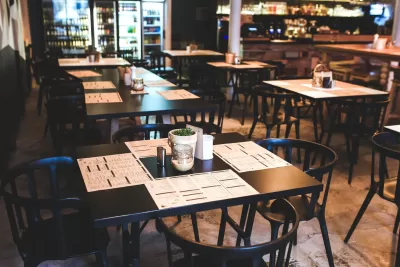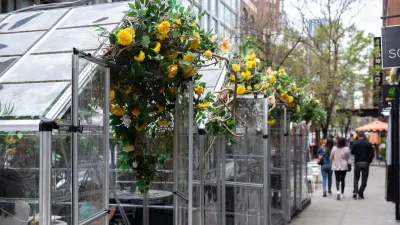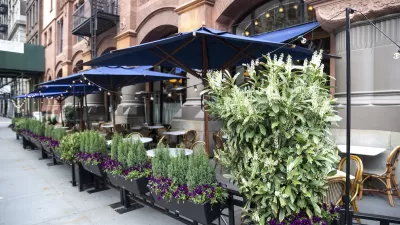High platform fees for food delivery apps have put struggling restaurants between a rock and a hard place.

With many restaurants across the country closing their dining rooms under stay-at-home orders to contain the spread of COVID-19, delivery has been one remaining lifeline for struggling food businesses. But with apps like DoorDash charging huge service fees, restaurants struggle to make a profit in an industry that already operates on razor-thin margins. Some cities have started putting a cap on delivery app fees, which usually start at around 30%. Local ordinances passed in Cleveland, Chicago, Los Angeles, and a handful of other cities have limited the fees to 15-20%. Prior to New York City Council reining in delivery apps in May, restaurants could even be charged for phone calls that didn't result in an order.
The delivery fees are just one part of a disruptive new industry that cities are still trying to regulate. New York City Council Member Mark Gjonaj, who advocates for a permanent fee cap, also wants to see greater transparency and improved worker protections for delivery drivers. The patchwork of emergency regulations passed this year reveal the "tension between the delivery apps and the restaurants that benefit from their services," Camille Squires points out. "The fight to regulate Big Tech delivery apps will continue well beyond the pandemic."
FULL STORY: US cities rein in food delivery apps on behalf of embattled restaurants

Manufactured Crisis: Losing the Nation’s Largest Source of Unsubsidized Affordable Housing
Manufactured housing communities have long been an affordable housing option for millions of people living in the U.S., but that affordability is disappearing rapidly. How did we get here?

Americans May Be Stuck — But Why?
Americans are moving a lot less than they once did, and that is a problem. While Yoni Applebaum, in his highly-publicized article Stuck, gets the reasons badly wrong, it's still important to ask: why are we moving so much less than before?

Using Old Oil and Gas Wells for Green Energy Storage
Penn State researchers have found that repurposing abandoned oil and gas wells for geothermal-assisted compressed-air energy storage can boost efficiency, reduce environmental risks, and support clean energy and job transitions.

Minneapolis Bans Rent-Setting Software
Four cities have enacted restrictions on algorithmic software that can inflate rent costs.

Oakland to Add 244 New EV Chargers
Oakland plans to launch its new charging network at eight locations by the end of 2025.

Jane Goodall Inspires with Message of Hope, Resilience, and Environmental Action
Speaking in Pasadena, Jane Goodall offered a hopeful and inspirational message, urging global compassion, environmental responsibility, and the power of individual action to shape a better future.
Urban Design for Planners 1: Software Tools
This six-course series explores essential urban design concepts using open source software and equips planners with the tools they need to participate fully in the urban design process.
Planning for Universal Design
Learn the tools for implementing Universal Design in planning regulations.
Heyer Gruel & Associates PA
City of Moreno Valley
Institute for Housing and Urban Development Studies (IHS)
City of Grandview
Harvard GSD Executive Education
Salt Lake City
NYU Wagner Graduate School of Public Service
City of Cambridge, Maryland





























